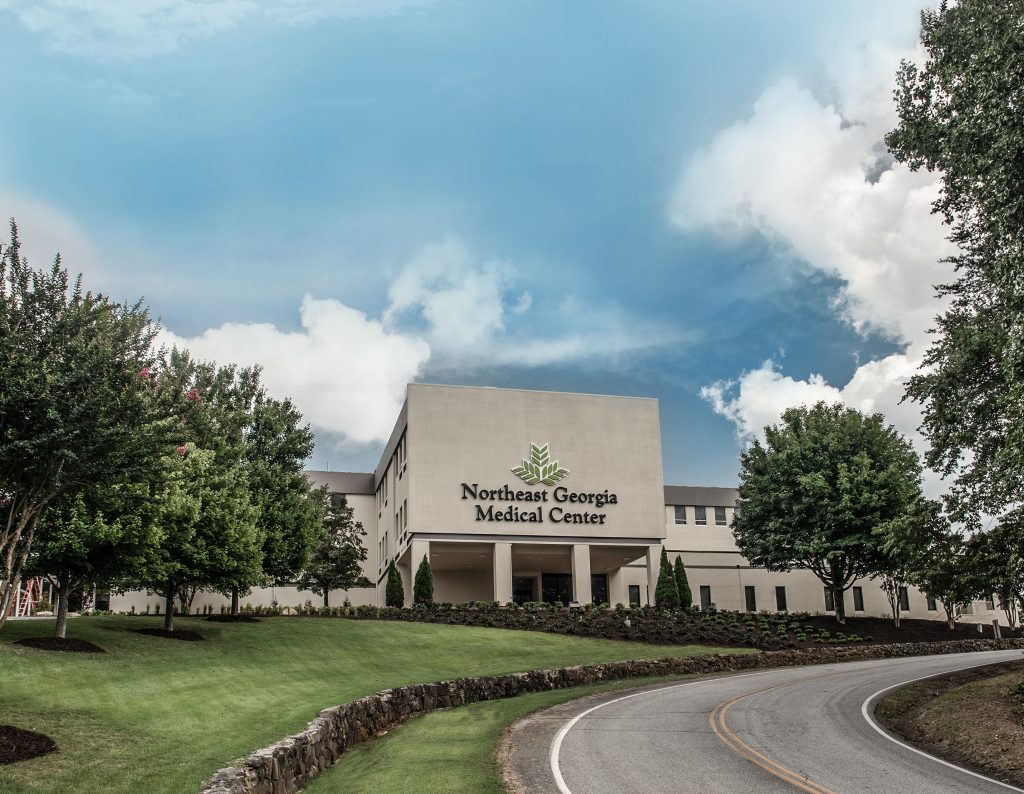Northeast Georgia Medical Center issued the following announcement on Feb. 10.
Northeast Georgia Medical Center (NGMC) Lumpkin continues to demonstrate its commitment to ensuring patients receive the care they need close to home, as the hospital was recently designated a Remote Treatment Stroke Center by the Georgia Department of Public Health for its advancements in stroke care.
“Since strokes cut off blood flow to part of the brain, brain cells start to die quickly and every minute counts when seeking treatment,” said Dr. Ryan Gethers, medical director of NGMC Lumpkin’s Stroke Program. “It’s important for patients experiencing a stroke to be taken to a designated stroke center, and we’re proud to now be on that list – so we can better care for our friends and neighbors right here in Dahlonega.”
To earn this designation, the hospital’s stroke team demonstrated the ability to evaluate, stabilize and provide evidence-based treatment to patients with acute stroke symptoms. NGMC’s established policies, protocols, data collection, resources, community relations and quality improvement were also important factors the state considered for this stroke designation.
This designation follows NGMC Gainesville’s certification as a Comprehensive Stroke Center in October 2021 by DNV Healthcare (DNV), NGMC’s accrediting agency. This means that NGMC Gainesville has the infrastructure, staffing and resources to treat even the most serious stroke events, and stroke patients no longer need to be transported to Atlanta for treatment. Additionally, NGMC Braselton and NGMC Barrow were recertified as Primary Stroke Centers by DNV after receiving initial certification in 2020.
Stroke is the fifth leading cause of death in America and a leading cause of adult disability, according to the National Stroke Association, and as much as 80 percent of strokes may be prevented through lifestyle changes and medication.
Knowing the acronym “B.E. F.A.S.T.” can help you recognize the signs of a stroke:
Balance – Watch for sudden loss of balance.
Eyes – Check for vision loss.
Face drooping – Does one side of the face droop or is it numb? Ask the person to smile. Is the person’s smile uneven?
Arm weakness – Is one arm weak or numb? Ask the person to raise both arms. Does one arm drift downward?
Speech difficulty – Is speech slurred? Is the person unable to speak or hard to understand? Ask the person to repeat a simple sentence, like “The sky is blue.” Is the sentence repeated correctly?
Time to call 9-1-1 – If someone shows any of these symptoms, even if the symptoms go away, call 9-1-1 and get the person to the hospital immediately. Check the time so you’ll know when the first symptoms appeared.
To learn more about the warning signs and stroke care at NGMC, visit nghs.com/stroke.
Original source can be found here.

Source: Northeast Georgia Medical Center

 Alerts Sign-up
Alerts Sign-up